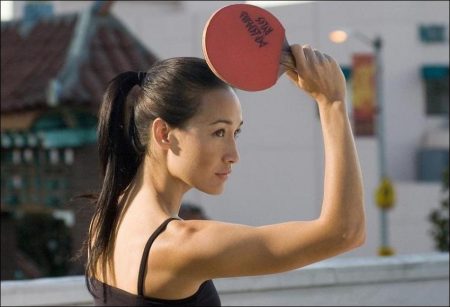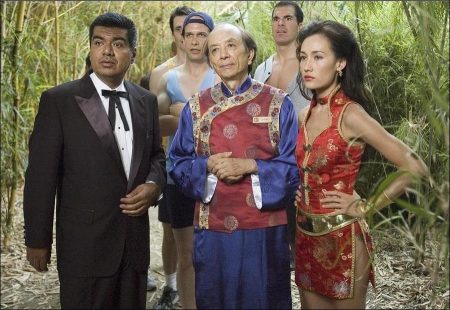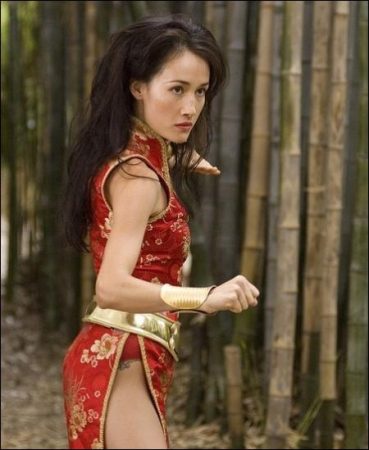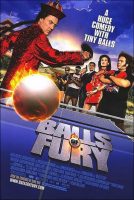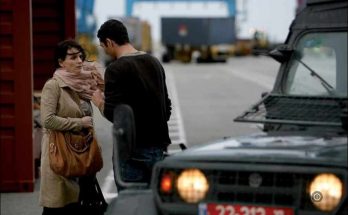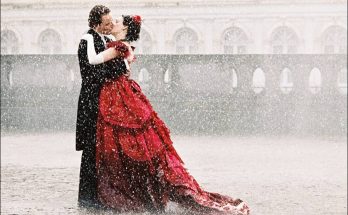Tagline: A huge comedy with tiny balls.
Balls of Fury movie storyline. A former ping-pong champ is brought in by the government to infiltrate a high-stakes underworld tournament and bring down the organizer, a feared crime boss.
An outrageous comedy. In this secret society, the competition is brutal and the stakes are high. It is the unsanctioned, underground, and utterly unhinged world of clandestine Ping-Pong tournaments. Down-and-out former professional Ping-Pong phenom Randy Daytona (Dan Fogler) is sucked into this maelstrom when FBI Agent Rodriguez (George Lopez) recruits him for a secret mission. Randy is determined to bounce back and win, and to smoke out his father’s killer – arch-fiend Feng (Christopher Walken).
In the unsanctioned, underground, and unhinged world of extreme Ping-Pong, the competition is brutal and the stakes are deadly. Now, this outrageous new comedy serves up this secret world for the first time on-screen. Down-and-out former professional Ping-Pong phenom Randy Daytona (Tony Award winner Dan Fogler) is sucked into this maelstrom when FBI Agent Rodriguez (George Lopez) recruits him for a secret mission.
Randy is determined to bounce back and recapture his former glory, and to smoke out his father’s (Robert Patrick) killer – one of the FBI’s Most Wanted, arch-fiend Feng (Academy Award winner Christopher Walken). But, after two decades out of the game, Randy can’t turn his life around and avenge his father’s murder without a team of his own. He calls upon the spiritual guidance of blind Ping-Pong sage and restaurateur Wong (James Hong), and the training expertise of Master Wong’s wildly sexy niece Maggie (Maggie Q), both of whom also have a dark history with Feng. All roads lead to Feng’s mysterious jungle compound and the most unique Ping-Pong tournaments ever staged.
About the Production
Balls of Fury is the outrageous new comedy from the team of Robert Ben Garant and Thomas Lennon, screenwriters of the blockbuster movie Night at the Museum and creators of the hit television series Reno 911!
Lennon notes, “We’ve been working together pretty much daily since we met at New York University in 1988 – so, half of our lives and counting. By now, we tend to be thinking the same thing most of the time; it’s sort of like having two halves of the same mind.”
“We will come up with an idea together and write an outline. Then we split up parts of the script and write separately,” reveals Garant. “Often, we’ll work on a Hovercraft in the Amazon.”
One day, the duo saw a news item about a Ping-Pong (a.k.a. table tennis) champion who, says Lennon, “couldn’t walk down the street without being mobbed, as if he were a rock star.” Cross-breeding that concept with their penchant for martial arts, the pair wrote a screenplay to rectify the fact that one of the world’s most popular sports hadn’t yet been exploited in motion pictures.
Garant elaborates, “We’re big Bruce Lee fans, and we thought, what if you took all the kung fu out of a kung fu movie and replaced it with Ping-Pong? So we researched the game for a year; there’s a training facility in Hong Kong that looks like something out of The Last Emperor.”
Lennon remarks, “We like to look at silly things in a serious way, and serious things in a silly way.” Garant offers, “People in the world of Ping-Pong do take it seriously. There are legends in the sport, and bad guys and sexy girls. If you just walk into a Ping-Pong club, people really do stop playing and turn to stare at you.
“Writing the Ping-Pong sequences was an interesting challenge; we had to keep the scenes dynamic and show the tide of a game turning and / or people cheating.”
Producers and Spyglass Entertainment Group co-chairmen and CEOs Roger Birnbaum and Gary Barber note, “As screenwriters, Tom and Ben had delivered a big hit movie for us with The Pacifier, and so we bought this project at the pitch stage – knowing they would deliver.”
“They have a unique sensibility,” adds producer and Spyglass president Jonathan Glickman. “They delivered a hilarious – and emotional, even – script, and we realized they should direct and produce Balls of Fury as well.”
As the project began to come together, actors started hearing about the script, and responded to its uniqueness.
Glickman notes, “Several actors were interested in playing Randy Daytona, but we had to find someone who was a terrific comic actor but who would also jell with an ensemble.”
Birnbaum and Barber add, “The actor playing Randy had to be highly physical, intelligent, and charming. It was Dan Fogler who best met all of those criteria.”
Fogler, who had recently won a Tony Award for his performance in the Broadway musical The 25th Annual Putnam County Spelling Bee, gravitated towards the material instinctively – “once I realized that it wasn’t a porno film,” he clarifies. “I’m a big fan of Ben and Tom’s work on The State and Reno 911! Balls of Fury has so many elements of the movies I love, like Rocky, The Karate Kid, and especially Enter the Dragon. My character is an underdog who goes on a heroic journey.”
“Dan, in his Broadway show, gave as funny a performance as we’ve ever seen, so we knew he’d be very funny in our movie,” reports Garant. “He was also very accommodating, considering how many pairs of shorts we made him wear.”
Oscar winner Christopher Walken, who has become an icon to moviegoers because of his eclectic body of work, plays the film’s über-villain, the notorious Feng. Walken remarks, “When I read the script, the first thing I noticed was how good Tom and Ben’s dialogue was. I felt Feng would be an interesting character to play. And I can still play Ping-Pong pretty well; it was very popular when I was a kid.”
Garant reports, “He came to the set several days early, so he could watch everyone else and see the movie that was being made. One day, he also brought Tom and I into his trailer and acted out the entire movie – to see if we liked what he was doing. Amazing.”
George Lopez, the popular comedian and actor, plays FBI Agent Rodriguez, who – like Randy – needs redemption. In Rodriguez’ case, he’s been, as Lopez elaborates, “ostracized, and a desk jockey, for the last five years. All because he thought an airplane full of oregano was carrying marijuana. I myself play golf with a former FBI Agent, so I asked him if that would ever happen, and he said it would. He also gave me some tips on how to handle a weapon.
“I also did some stunt work in Balls of Fury, which I could pull off because I’ve had to subdue many of my uncles at weddings and quinceañeras…”
Lopez was particularly entertained by the script because “Chinese culture is so revered, and has been for centuries – and Balls of Fury turns all of that inside out. The respect that the culture deserves is still there, but we harvest laughs.”
Similarly, Garant and Lennon wrote the part of blind mentor, and Ping-Pong Master, Wong with veteran Asian-American actor James Hong in mind. “He is a hero of mine,” states Garant. “We wrote Wong with James’ distinctive cadences.”
Filmgoers will remember the actor from, among dozens of movies, Chinatown and Airplane! Hong recalls, “Ben and Tom and I had coffee together, and they told me their wonderful idea for this movie. The script was wacky enough for me.”
Quickly settling into character, Hong developed a fine ear for sensing the trajectory of the Ping-Pong ball. He intones, “If you can’t see the ball, you can still hear it. A softer bounce off your opponent’s paddle means that the ball is going to have more spin and a downdraft. If the ball sounds like it’s been hit very hard, your opponent is going to slam it at you and it will have less spin. You must adjust accordingly…”
Yet it’s Maggie, Wong’s niece, who is the real hands-on trainer; Fogler reveals, “She and Randy turn out to share a passion – two passions, in fact.”
Actress Maggie Q was looking “for a comedy – something that people wouldn’t expect me to do. Oddly enough, in Balls of Fury I fight more than I did in Mission:Impossible III.
“I liked the dynamic Maggie Wong has. It’s every woman’s; she’s delicate and sweet – and in certain ways she can be a hard-ass.”
Lennon admits, “Basically, we wanted to see Maggie Q kick people in the face – a lot. We think many people will, actually.”
The duo also thought that many people would enjoy hearing songs from the rock group Def Leppard. Garant says, “There were a number of big-hair bands in the ‘80s, but Def Leppard was the real deal. We love how they epitomize that period, and we loved the idea of Randy unapologetically still loving the same music he rocked out to when he was 12.”
Garant and Lennon knew that the comedy they had scripted wouldn’t work without at least some basis in reality – especially where the Ping-Pong action was concerned. Accordingly, Fogler and several other actors spent time training and trading serves with Wei Wang and Diego Schaaf.
Wang is a former table tennis Olympian who had competed in the 1996 Atlanta games for the U.S. and earned a bronze medal. “Those were the most exciting moments of my life,” she says. “I’ve been playing since I was 11 years old.”
Table tennis coordinator Schaaf adds, “If you want to be an Olympic player, you have to start at an early age – 9 to 11 years old, with 6-8 hours of coaching and training every day. In China, kids live in table tennis camps and get schooled there.”
Wang advises, “To play, you need to develop a stroke and a serve, and to learn how the ball spins. You also learn to create your own trajectory as you serve the ball – trying to make it a little difficult for your opponent to see clearly, while also getting the ball served fast.”
Maggie Q remembers, “We realized pretty quickly that they were serious about us looking good, so we had to get with the program. It’s more physical and specific than people know. I think there’s just as much discipline involved as in kung fu. “We also had pro Ping-Pong players on the set as extras, and I would get coached by them as well; ‘Oh, Maggie, you should do it like this…’”
One of the [fictional] pros opposing Randy is his once and future bête noire, East German table tennis player Karl Wolfschtagg – played by Lennon. He notes, “The leotard and hairdo were perfectly formed in my mind already. That was my preparation; it helps to have a specific outfit. On the set, playing a furious and possibly sinister type was easy because the dance belt on the leotard really hurt.”
As to his Ping-Pong preparation, he reports, “I’d work on my form and ask Diego, ‘How did that look?’ I’d mostly get a blank stare, or maybe, ‘It’s okay. Can they fix that in post-production?’ Truthfully, though, I am way better than I used to be, thanks to Wei and Diego.”
Schaaf emphasizes, “Hand-eye coordination is very important, and so is the mental aspect, because there is very little time for your strategic decisions; you hit the ball and you have about a third of a second until the other player hits the ball.
“You have to decide where and how you’re going to play it back, while also evaluating what your opponent did with it and what he is expecting you to do. It has been compared to playing chess while running a 100-meter dash.”
Ultimately, Wang says, “We only trained these actors for a few weeks, but they were very enthusiastic, so I gave them more and more to do. Dan Fogler loved it; after learning a stroke, he would say ‘Let’s play more!’”
Fogler remembers, “At first, they put me up against a Ping-Pong ball-spitting machine, which was both ridiculous and intense. I hadn’t played Ping-Pong since I was 11 or so, in my parents’ basement. But now, I can beat some of my friends.”
The increased Ping-Pong skills of the cast were not lost on Garant, who “did not once play the game during production. I had read an interview with [NBA Coach] Phil Jackson where he said, ‘Never try to shoot a basket in front of your players.’”
The History of Ping-Pong
Various worldwide associations now refer to the game more formally as table tennis. Rooted in the medieval game of tennis, Ping-Pong became fashionable in England in the latter half of the nineteenth century, and soon became popular around the world.
Initially, the game was variously referred to as Gossima, Whiff-Whaff, and Flim-Flam, but the sound of the ball being hit onto the table ultimately gave the game its most common name. A Briton named James Gibbs, who had begun using hollow celluloid balls to play, came up with the Ping-Pong name but did not register it.
The name Ping-Pong was registered by an English sporting goods company, J. Jacques & Son, and was later trademarked by the American board game company Parker Brothers in 1901.
Originally, British army officers in India and South Africa used lids from cigar boxes for paddles; and rounded corks from wine bottles as balls. Closer to home, upper-middleclass Victorian Englishmen and women would turn their dining room tables into smaller versions of a traditional lawn tennis playing field. Books were lined up and used as the net. In addition to the lids from cigar boxes, parchment paper stretched around a frame would serve as paddles. In addition to the rounded corks, actual rubber balls began to be used, though some balls were still fashioned from string.
Worldwide exposure for Ping-Pong came in 1902 when a Japanese professor visiting Britain took the game back home with him, and introduced it to university students. Later, the game spread to China and Korea. Around the same time, a British salesman, Edward Shires, brought the game to citizens of Vienna and Budapest. To complement the superior celluloid balls, Englishman E. C. Goode covered his wooden racket with pebbled rubber in 1902. This allowed him to put additional spin on the ball.
Beginning in the 1920s, national and international associations were formed, and a standardization of rules was set in both Europe and the Far East. The first world championship tournament was held in 1927 in London, and tournaments were held every year until World War II. Two players from Hungary – Maria Mednyanszky and Viktor Barna – dominated the competition, with players from Czechoslovakia, Romania, France, and Sweden close behind. Beginning in 1950, Romanian player Angelica Adelstein-Rozeanu would win the world title 17 times.
A larger overall shift in Ping-Pong dominance, to Asia, began in 1952 when Japanese player Horoi Satoh introduced the foam rubber-faced paddle. This paddle sped up the game and the spin factor became even greater during competitions. Asian players also developed the “penholder” grip, in which the handle of the paddle is held between the forefinger and thumb. This method allows players to put spin on the ball with the same face of the paddle on any stroke; it is now the standard grip used by nearly all of the top international players.
In April 1971, the United States table tennis team was invited to play in the People’s Republic of China, by the Chinese team. The U.S. team was the first group of Americans to be allowed into the country since 1949. By the fourth day of the visit (reported on in a Time cover story, “China: A Whole New Game”), the U.S. dropped its 20-year trade embargo. The following year, President Richard Nixon visited China, and was acknowledged for re-establishing relations with the previously off-limits nation as a result of “Ping-Pong Diplomacy.”
Table tennis became an Olympic Games sport in 1988, with singles and doubles competition for both men and women. ESPN2 now regularly airs matches, as over 14 million Americans are active Ping-Pong players. Now in its second century, the sport has received a new rush of attention because of gifted younger players like 2004 National Collegiate Table Tennis champion Biba Golic.
Balls of Fury (2007)
Directed by: Robert Ben Garant
Starring: Dan Fogler, Christopher Walken, George Lopez, Maggie Q, Thomas Lennon, Robert Patrick, Aisha Tyler, Thomas Lennon, Jason Scott Lee, Diedrich Bader
Screenplay by: Robert Ben Garant, Thomas Lennon
Production Design by: Jeff Knipp
Cinematography by: Thomas E. Ackerman
Film Editing by: John Refoua
Costume Design by: Mary Ann Bozek
Set Decoration by: Dena Roth
Art Direction by: Steve Arnold
Music by: Randy Edelman
MPAA Rating: PG-13 for crude and sex-related humor, and for language.
Distributed by: Rogue Pictures (Focus Features)
Release Date: August 29, 2007
Views: 306
